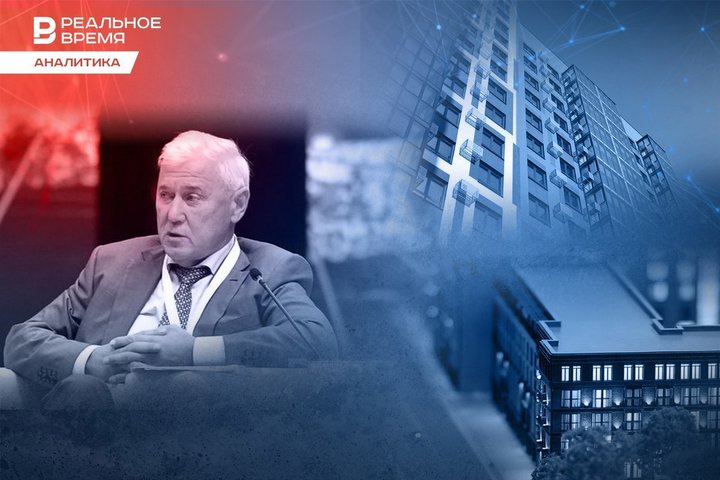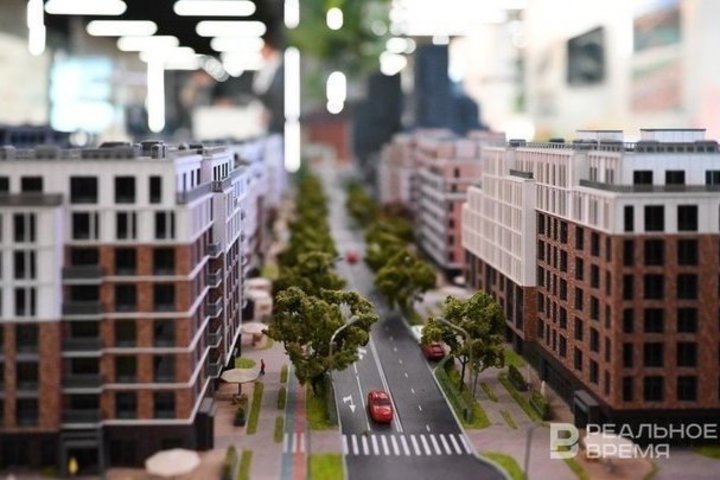‘We expect a 40% drop in demand’: what happen to new buildings market without preferential mortgage?
A new era is beginning in the Russian construction market in July

Few days left before the completion of the state programme of preferential mortgages, which started in Russia four years ago to support citizens and the primary real estate market. In fact, banks, limited by budget limits, have practically stopped approving applications and have significantly increased the requirements for initial contributions. The programme itself has long ceased to meet the purpose for which it was launched — housing affordability. Prices for new buildings have increased by 96% in the last three years, according to Rosstat estimates. With the completion of the programme, the balance in the market, according to officials' expectations, should recover, and housing should finally become available to the population. Realnoe Vremya analytical service tried to find out whether the cancellation of the preferential programme will lead to a collapse in the construction industry.
Will the unaffordable become affordable?
The State Duma expects an increase in housing affordability after the abolition of preferential mortgages. Demand will return to normal indicators, and prices will no longer be inflated, said Anatoly Aksakov, the head of the Duma Committee on Financial Market. According to his estimates, the massive preferential mortgage has caused a significant increase in housing prices. As a result, the gap between the cost of apartments on the primary market and on the secondary market amounted to almost 50%.
“I believe that housing will be sold at reasonable prices, and not at inflated prices. It will become more affordable, of course. There will be no need for a preferential mortgage programme, the usual one will be enough," said the chairman of the State Duma Committee on Financial Market.

Sergey Pakhomov, the chairman of the State Duma Committee on Construction and Housing and Communal Services, also spoke about the decrease in housing affordability against the background of the programme. According to him, the preferential mortgage itself worked more for the investor. “Let's be honest, mortgages have not made housing affordable recently, even at a zero rate," Sergey Pakhomov said. In the near future, conditions for preferential mortgage programmes for the next five years will be formed, and they themselves will become targeted. “But in general, this door called 'preferential mortgage' is being closed," the deputy noted.
Among the preferential programmes, IT Mortgage and Family Mortgage will continue to operate in the second half of 2024. Representatives of the Ministry of Finance of the Russian Federation stated that the total limit of funds for IT Mortgages could be increased as early as 2024 to 1 trillion rubles (now 700 billion rubles). And the Family Mortgage programme, extended until 2030, will be made more targeted, and it will be designed to support the housing market in small towns.
Prices are not expected to fall
“We fundamentally disagree with Mr. Aksakov's position. In conditions of a high key rate and targeted preferential programs, an unaddressed preferential mortgage for a mass buyer — if we take the scale of the whole country — remains almost the only way to buy an apartment. In this regard, I do not understand how reducing the opportunities for purchasing housing can increase its affordability to a wide audience," Nail Galeev, CEO of the SMU-88 group of companies, commented. “The abolition of preferential mortgages will not lead to a drop in prices on the market.”

“It is worth recalling that pricing in the primary market is a complex process that is formed based on many factors: the key rate of the Central Bank, the specifics of working on escrow accounts, costs for building materials, land and labour. Today, the cost of bank financing has the greatest impact. Let me remind you that all construction today is carried out with project financing and the use of escrow accounts," Nail Galeev explains. “The developer takes a loan from the bank for construction according to the key rate+3% scheme, where the rate is floating and can change. To compensate for an increase in the rate, developers are forced to increase the cost per square metre. Next, we must remember that the escrow account mechanism works in such a way that the developer cannot access the money until they commission the house. All this time, money is not protected from inflation in any way and is devalued. Therefore, developers are forced to include these losses in the cost per square metre.”
Besides, since the beginning of the year, there has been an increase in prices for basic building materials and work, he emphasises. For example, in the first quarter of this year alone, prices for basic building materials — concrete, brick, rebar, insulation — increased by 10-20%. Along with the materials, working costs have also increased — for certain types it reaches 80-90%. As a result, the cost of construction increased by about 30% over the year. Considering all of the above, it is not worth counting on a price reduction in the near future, the SMU-88 explains.
Cold shower for overheated market
Now there is a rush in the market of new buildings, many customers have accelerated their purchase decision in order to have time to take advantage of preferential programmes, Antonina Darchinova, thte commercial director of Novastroy Group, commented on the situation.

“The discussion on the cancellation or at least reduction of preferential mortgage programmes has been underway since their launch, so the market is ready for any changes," says Maxim Nikolaev, the managing partner of BMP Brands Group. “The housing supply of citizens in Russia is not yet high, the decrees of the president of the country are in force, so the government will certainly find alternative solutions.”
Thanks to the massive preferential mortgage, many had the opportunity to improve housing conditions, but the life of developers has also “improved”, says Anastasia Gizatova, the head of Schastliviy Dom real estate agency. “I don't always understand the “attacks” on developers, because they are the same taxpayers and employers," she admits. “But this programme, due to the lack of targeting and restrictions, has led to an increase in the cost per square metre and investment demand. As a result, housing has become less affordable, although a lot of budget funds have been “pumped in”. But now, by removing the preferential rate for those who have not yet participated in this state programme, the government completely blocks their chance for affordable housing.”

Prices from developers will not decrease in the near future, because they have most likely fulfilled their sales plans for this year in the last three months. “There were sales explosions in April, May and June, we see this statistically. Therefore, the developers have completed the annual sales plan, and there are reserves in order not to reduce the cost," Gizatova is sure.
At the same time, the expert does not believe that the preferential mortgage will be completely removed. “Firstly, IT Mortgage is valid until the end of this year, Family Mortgage — until 2030, but it will be modified. Perhaps, for some groups, Family Mortgage will become even better. In any case, it remains for the suburbs of Kazan. Probably, if sales drop significantly in three months, then the mortgage with state support will be returned in a different form," she does not exclude.
Limits on preferential mortgages already exhausted
“Officially, the preferential mortgage finishes on July 1, but in many banks it has already ended, the limits have been exhausted," said Marat Gallyamov, the founder and director of the Etagi-Kazan real estate agency. “It's impossible to take out a mortgage, even if you want to. The one who waited and postponed the purchase for later is now trying to jump into the last car. Many developers have raised prices due to increased demand.”
The cancellation of massive preferential programme, in his opinion, is the right thing to do. “One way or another, state support will remain, both for large families and in small towns, where it is necessary to support construction. But the price growth in the market will slow down from July, transactions will decrease by forty percent at the moment, until people get used to the existing realities," he believes.

At the same time, demand will move towards the secondary market. At the moment, the secondary market occupies 40% of sales, and new buildings — 60%. “It seems to me that they will switch places, and a new secondary will come to the fore — from investors," he believes. “Interesting projects from developers will continue to grow, while uninteresting ones will survive. Everyone will fight for the buyer.”
Construction lobby will continue to fight for benefits
“We are all waiting for the end of June. At least, I now see two main opposing sides — the Central Bank, which is trying to reduce inflation in the country, and the construction industry together with banks. The Central Bank benefits from everything that reduces inflation, and it is now on the verge of raising the key rate even higher. On the other hand, there is an entire construction industry, and, of course, it is beneficial for developers that preferential programmes and subsidies are maintained so that their housing is in high demand compared to secondary housing," Ruslan Khabibrakhmanov, the director of Flat real estate agency, commented on the situation.

“It's unclear what will happen next," he admits. “On the one hand, state support is being removed, on the other hand, the boundaries are being expanded under Family Mortgage — now the main thing is that one of the children is a minor. We'll wait and see, but in any case, it will take some time for prices in the new building market to fall. Developers must face a sharp decline in demand. An interesting situation arises in the market of new buildings. The pressure on the government from the industry will be very serious.”